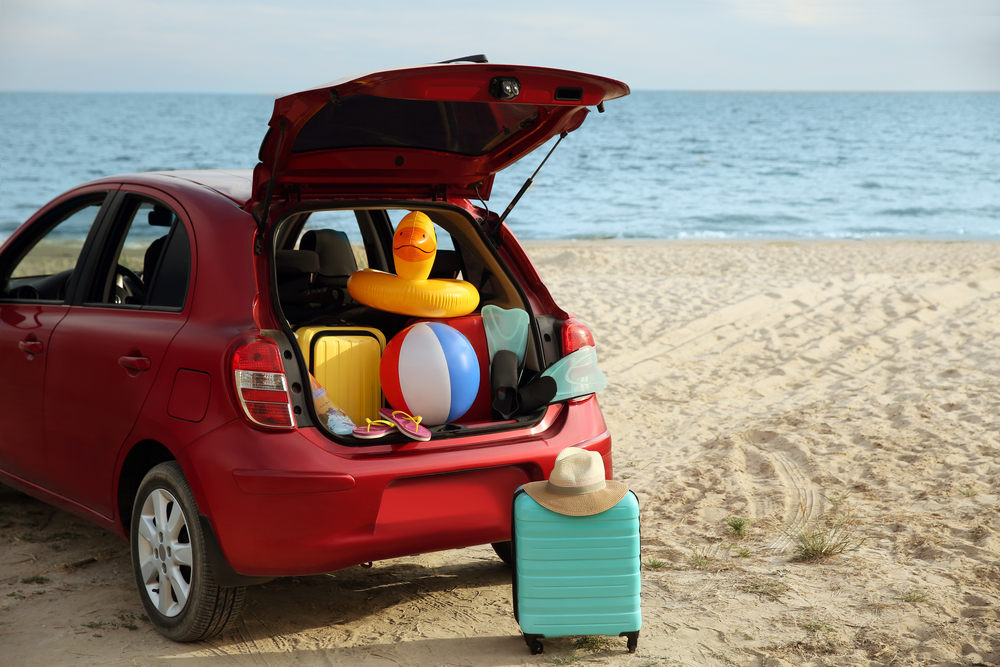Check out our Summer Safety Vacation Guide to avoid any unpleasant surprises that can ruin your plans. Being aware of seasonal hazards and planning ahead can help ensure your safety. Here are seasonal tips and resources to help keep you and your family safe this summer.
- In planning any travel or trips, check out the Federal Trade Commission’s guide to avoiding common travel scams.
- Whether you are traveling or having a “staycation”, here are tips for staying out of the Emergency Room this summer. Also, here’s a more detailed look at kids and summer injuries that occurred last summer: Preventing summer ER trips: Children’s injury trends and statistics 2024.
- Prepare your home for vacation. Take steps to ensure there are no surprises on your return.
- AAA offers tips for preparing your car for a summer road trip. The National Highway Traffic Safety Administration also offers good tips for summer driving, including prep and on-the-road safety.
- Keep your eye on the weather and watch out for severe storms. See the National Weather Service on lightning safety and outdoor sports activities.
- Check the UV Index in your area. Limiting sun exposure to protect your eyes and your skin is important during daylight hours of summer when UV rays are at their strongest. Learn how to protect yourself from UV rays.
- Know the signs of heat exhaustion and heat stroke and the importance of staying hydrated in hot weather. Here are tips for staying safe during a heat wave. Also, see our Extreme Heat Toolkit.
- Practice water safety. Healthy swimming and recreational water from the Centers for Disease Control offers great resources on everything water-related, from swimming, boating and pool safety to water-related illnesses and skin cancer prevention. For more, see PoolSafely.gov, the National Drowning Prevention Alliance, and the Boating Safety Resource Center from the U.S. Coast Guard.
- Learn how to reduce risks so your family can enjoy swimming in the ocean and large lakes with swimming safety advice from the Red Cross. This includes many water-related safety resources.
- Prevent food poisoning by practicing food safety. See the FDA for great tips on handling food safely while eating outdoors and our prior post on Tips to store fruits and vegetables for best freshness, flavor & safety.
- Planning to visit any National Parks? Here’s a guide for visiting parks in 2025, which includes a planning guide and park-specific alerts. They also offer a great guide to health and safety, including sections on wildlife and outdoor hazards and disease prevention. See 7 ways to safely watch wildlife and follow these tips for selfie safety when snapping pictures.
- For solo hikes or adventures, tell someone where you are going. Even experienced hikers and boaters can get lost or run into trouble. Keep a fully charged phone and tell someone where you’re going and when you’ll return. See Hiking alone: why it’s so great and how to be safe.
- Protect against stinging, biting things. Ticks and mosquitoes can transmit serious illnesses. Learn about the insects you should be concerned about and those that are just going about their business: Pest alert – the biting and stinging insects of summer.
- Practice biking safety – Bicycle safety for parents and kids from the National Highway Traffic Safety and Bicycle safety: how to not get hit by cars are both good resources. Helmets are an important way to prevent injuries. See the Bicycle Helmet Safety Institute.
- Will you be traveling internationally? See the State Department’s guide to international travel, including resources for planning ahead and tips for what to do in emergencies or disasters.
- Staying in a hotel? See this complete list of hotel safety tips for business travelers, which is a pretty good guide for leisure travel, too.
- Don’t forget about summer safety for your pets! See the ASPCA’s hot weather safety tips and warm weather pet tips from the American Veterinary Medical Foundation.

